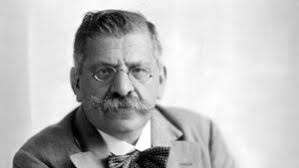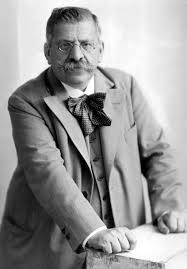
Magnus Hirchfild was a German physician who established the first Institute for Sexology in 1919. Growing up, Hirchfild was keenly interested in medicine and eventually dedicated his career towards the research of human sexuality and gender. What transformed his interest in sexology was in the early 1900s when he had a visit from a patient who expressed his concerns about marrying a woman he did not want to marry. In the conversations they had in the following weeks, Hirchfild’s patient kept describing a certain feeling he had that, to him, was indescribable. It became clear that Hirchfild’s patient could be gay and his inability to describe could have been due to the fact that being gay or lesbian (as well as being transgender) was considered illegal for most of the world.
Germany specially had a law in section 175 which stated that homosexuality was illegal. Hirchfild received a letter from him in the following months saying how he couldn’t bear to marry the woman he was forcefully engaged to and his patient took his own life. From that point on, Hirchfild dedicated much of his research towards human sexuality. In the time before World War I, Hirchfild gave lectures about what he had discovered; how homosexuality was a natural variation of human existence. The students, however, wouldn’t take it well. When the school day was over, Hirschfeld was often beaten up and, at one point, almost to the brink of death.
When World War I concluded, the Weimar Republic was established. In the process, Hirchfild founded the Institute of Sexology. It was meant to be a place not just for research, but a safe setting for people who were gay or lesbian to receive guidance. It was also a place where people could get guidance regarding their gender identity and sex-based anomalies. This technically made it the first gender clinic in the world even if the procedures then were quite primitive and lethal by today’s standards. With its strong link to sexuality, this is when he also began studying another complex and varied aspect of human existence; gender and how diverse it truly was amongst men, women and its more spectral nature. He was able to shape so much of our understanding in this type of psychology that even back then, when Albert Einstein was becoming popular with his theory of relativity, he was dubbed “the Einstein of sex”.
However great his contributions were, it is also worth mentioning that he was a believer in the unethical idea of eugenics. This was a method of reproduction that only allowed a certain group of people based on their characteristics. I don’t want to romanticize him as being this perfect hero saving a minority because he didn’t always have the best of ideas. In the years that followed, the Nazis were slowly rising to power and Hirchfild was their first target. Hirchfild was briefly named “The most dangerous man in Germany” not just for his status as a homosexual and transgender advocate, but also for being gay himself as well as being Jewish. The Institute of Sexology was the first place to be looted by the Nazis, specifically by a youth group, and the first to have its books burned. The institute contained thousands of books that probably had over a century’s worth of sex, sexuality and gender research.
Hirchfild was revoked of his German citizenship, forced into Exile in France and died of natural causes in 1935. Since World War II ended, Germany has done everything to pay for the crimes of the holocaust and become a better, freer country which includes repealing section 175. Magnus Hichfild was a notable figure in

advocacy that could ensure their rights, give them, as well as everyone, autonomy, sexual health advice and sex education. It seems that many have already uncovered this forgotten nugget of history and how it relates to these rights still being fought for today.
Of course, I did not cover everything. Magnus Hirchfild was not perfect. He was a flawed human who wanted people he felt were treated unjustly to be given the proper treatment and respect by others. His advocacy and dedication does not go unrecognized. He even had a saying that now resides on his tombstone today, “through science comes justice.”.





